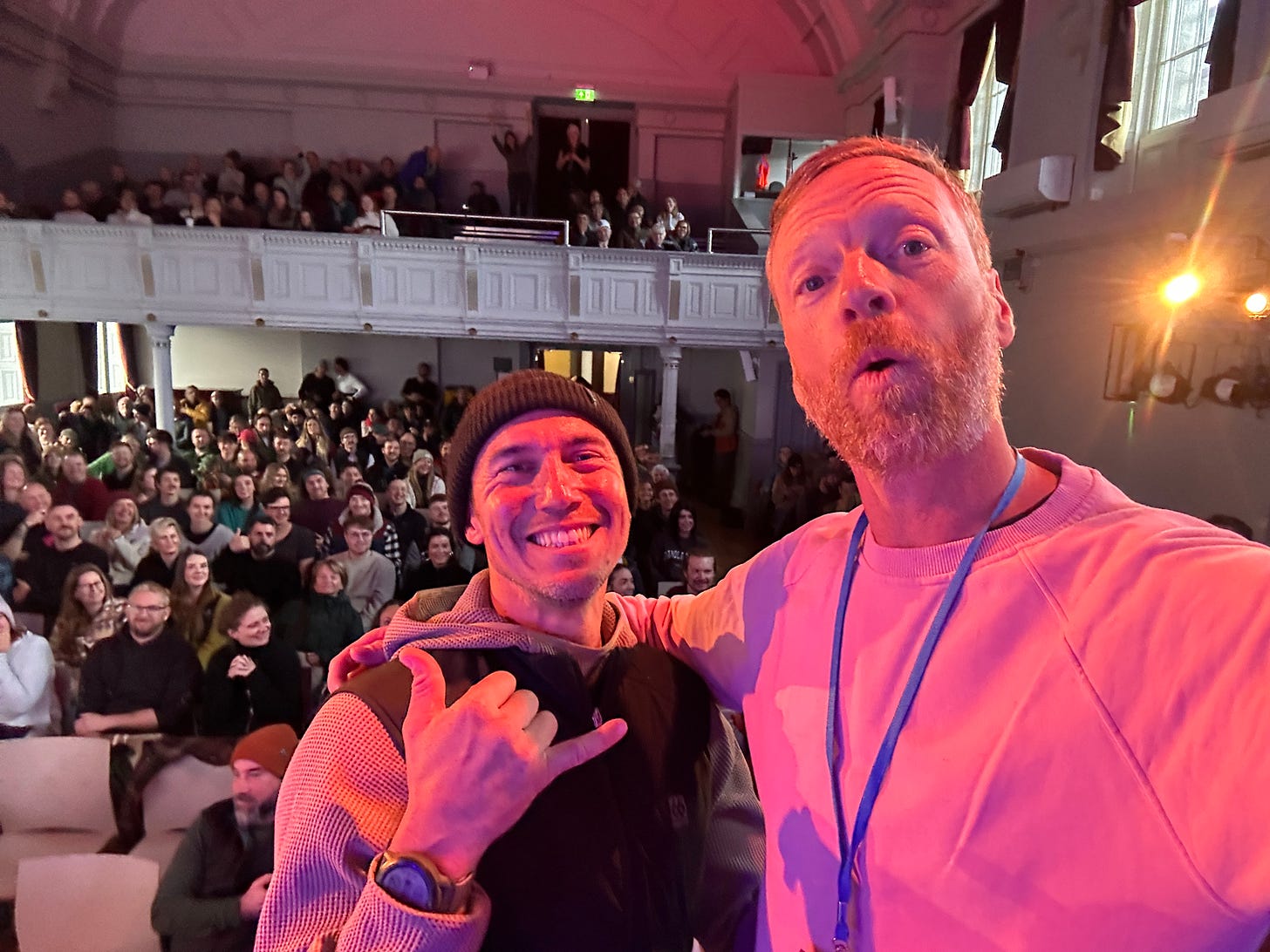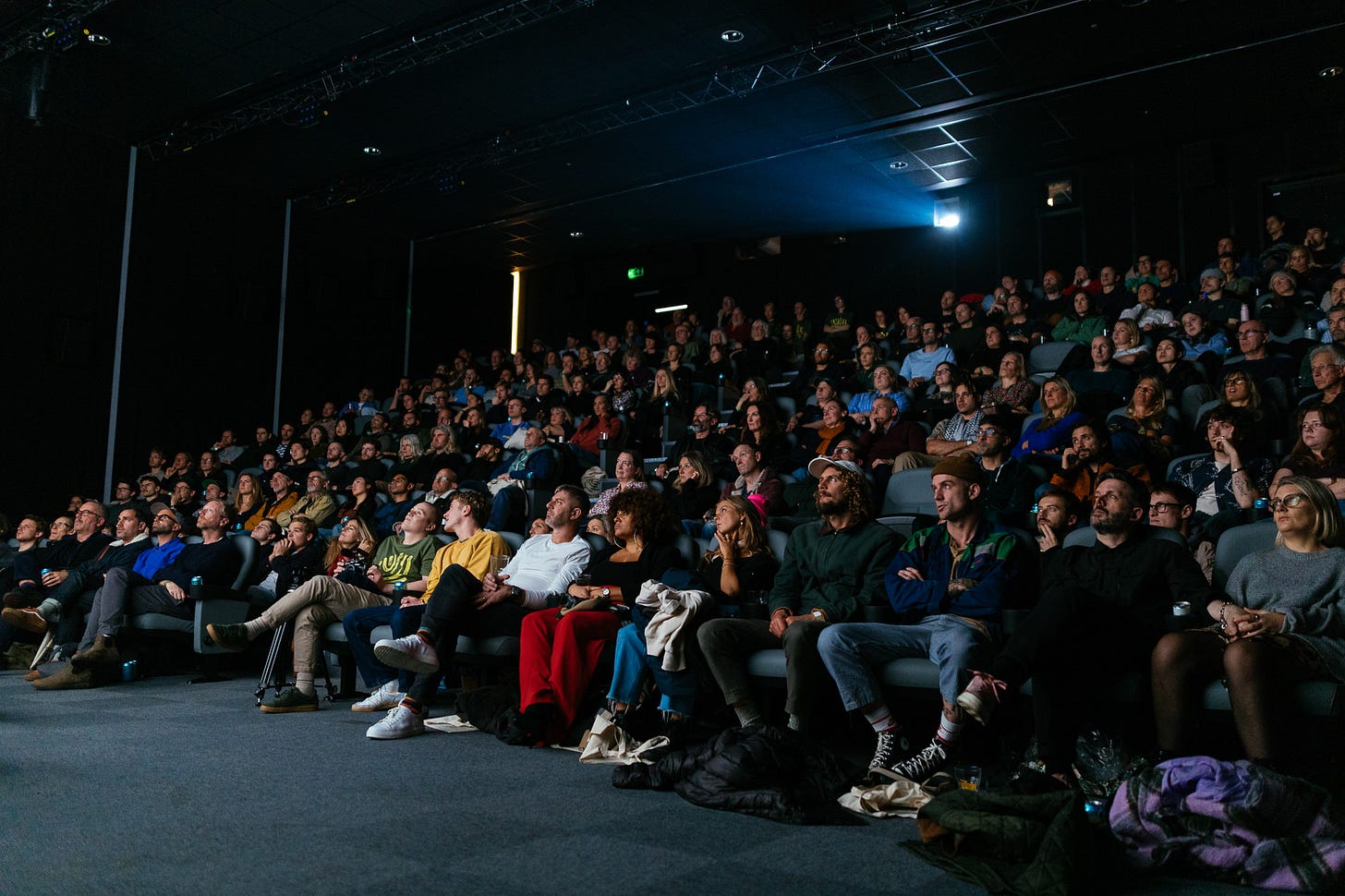2024: The Year of Feedback (or When Did You Last Change Your Mind?)
Why is changing your mind so difficult? And when did you last do it?
Now I look back on it, 2024 was a year of feedback - in every direction.
In one way, this is fairly normal. One of the main parts of my roles at All Conditions Media, for example, is spending time giving feedback: on decisions, proposals, campaign ideas, personal dynamics, and so on. Over there, we try and promote an open culture where feedback is necessary and accepted.
We’re not always completely successful at this, but generally I’m fortunate to work daily with a group of people who understand how necessary feedback is if you want to do good work and have a strong culture, and who try and implement this every day of their working lives.
Then there was the feedback I received myself, especially around the making of my new documentary series The Announcement.
One of the things I've learned over the years of engaging in various creative pursuits is that dispassionate feedback is absolutely essential if you want the thing you've worked so hard on to be any good.
That's one reason I am such a fan of this quote, here.
"A script is a note to your collaborators that you hope they'll be able to read." - Steven Soderbergh
(At least, I think it’s by Steven Soderbergh. I read it years ago, but have never been able to find a proper attribution).
Anyway, that's why when it came to eliciting feedback about The Announcement, I followed some longstanding best practice and drew up a list of friends and colleagues who I trust implicitly; and who I knew would take the time to listen properly, and who would pay me the respect of following through and giving it to me straight.
At the time, some of the notes I received were difficult for me to hear. Especially when they involved deliberate creative choices I’d been convinced were effective but which, it turned out, weren’t working in the way I’d hoped or expected them too.
So I lived with them for a while, and let the emotion cool. In doing so, I parked my ego - and was able to look at my project with fresh eyes, and some much-needed perspective.
In the end, I made about 90% of the changes my de facto panel suggested I should.
The result? As I can now see, a finished series that is stronger, tighter, and more compelling.
Finally - and this is where it got really interesting, and what inspired me to write this - there were the two or three examples of feedback I saw other people receive (some of it very publicly) and take extremely badly.
In a couple of these particular cases, the cognitive dissonance on display (as the recipient congratulated themselves on how well they were taking the feedback, while simultaneously and unconsciously rejecting it) was tangible.
Why did I find this so fascinating? Because these were proud creative types who make their living from putting work out into the world.
If you asked them (or anybody engaged seriously in the creative arts), I'm willing to bet they'd tell you that, Sure, actually they LOVE to receive feedback, and actively seek it out.
But what these examples demonstrate is something fundamental, as I experienced myself: genuinely engaging with emotionally challenging feedback is much, much harder than we all think it is.
Ever since, I’ve been mulling over a few related questions:
Just why DO people recoil from feedback, and push back against it?
To the point that they will persuade themselves they are accepting it, even in the very act of rejecting it?
And why is it so difficult to change your mind about something?
One reason, I humbly propose, and which Robbie Williams nailed with this quote, is because feedback can run counter to the story of the self we are all continually spinning for ourselves. And when it comes to creativity, this can be a real problem.
After all, everybody needs to tell themselves a story to get up for it in the first place. Maybe I am good enough. Yes, I can stand on that stage. Maybe I SHOULD start a podcast, or write that script, or pitch that article.
Feedback from others, especially when you’re getting started, can demolish this carefully-constructed edifice. And it can feel very, very personal.
The fear of being told you or your work isn't good enough is why there are so many half-finished books, scripts and albums locked away in virtual drawers. And why there is such a lucrative cottage industry (hello The Artist's Way and The War of Art) predicated on (expensively) helping people unlock this conundrum.
Of course, one of the many layers of irony at work here is that, for the person offering up the feedback (especially if you've asked for it!), it is very rarely personal.
Another? It's only when you genuinely listen and engage that you begin to discern that what feedback really offers is a welcome chance for self-reflection. A chance to learn and improve; something will be essential if you’re ever going to master your craft or project.
It’s why one thing that marks out an absolute pro is their ability to take feedback for what it is, rather than a personal attack.

Still. Tough brief, eh?
But the good news is that taking feedback, like anything, is a skill you can learn. If you can get past that initial emotional recoil, and surmount the aforementioned cognitive dissonance, it always, always has something to teach you.
For most of us, the issue here is that this can involve - gasp! - changing your mind about something really important to you (like your own self-image, for example).
Which is, it turns out, one of the most difficult things that grown adults can do (which is at least one thing that social media has taught us, as any glance at X, or the comment section of a Jeremy Jones Instagram post, instantly demonstrates).
All of which got me thinking:
When was the last time you changed your mind?
Can you even remember it?
And what did it teach you?
I'd love to start the year by hearing from the Looking Sideways community on this one.
Let me know using the button below:






“Feedback is the breakfast of champions” (Ken Blanchard). Treat giving and receiving FEEDBACK as a G.I.F.T: Giving Information for Fine Tuning. You might not always like it but in all cases you thank the giver, you unpack it, you can decide whether to keep it….
When did I last change my mind? When I thought I shouldn't post a comment here.
I am quite stubborn about some things, but I have my mind / opinion changed really easily. I am a sucker for a well argued point. But I avoid criticism at all costs. Mea culpa, I want to be seen as right. Don't we all?
So at what point does feedback become criticism? Why is the former seen as generally positive and educational and the latter negative and destructive? I liked that Rebecca opened the comments using the two together as "critical feedback" which might even be a third kind of thing. Is the difference just about the intent of why comments are being made or the tone of how they are delivered?
I suspect that how well we take feedback - and how constructive it is to our work and our likelihood of changing our minds - is mostly to do with expectation. Have you asked for it or is it unsolicited? And is it coming from an respected voice or just some guy on the internet?
You asked for feedback on The Announcement doc only from trusted and respected friends, but you open up you Insta and Substack posts to every angry GOTI. How often do you change your work or mind because of the latter? And why should you? And do you?
As relatively new Teaching Fellow at a University I have had to learn how to give feedback that will change minds, and it's not easy to be dispassionately critical and constructive. It is mostly a variation of the s**t sandwich: here's what you did well, here are the areas for improvement, and here's how you can improve. You can't say "I didn't like it" and "I disagree with you" has to come with well referenced evidence.
My apologies that this comment became an essay, but to finish near the start, if feedback is kind, constructive, lucid and well reasoned, it will almost definitely change my mind.